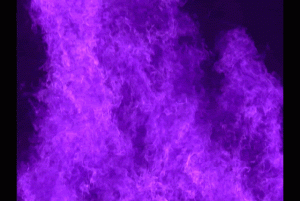- 7,801
- 4,744
- Joined
- Jul 14, 2003
Some updates from Minneapolis' local paper:
Inquiry into Prince's death focusing on drugs
Siblings had sad he had opioid problem
Authorities investigating Prince’s death are focusing on the role that painkillers apparently played in both his fatal collapse at Paisley Park and in the medical emergency that forced his private plane to land in the middle of the night in Moline, Ill., days before.
Several sources familiar with the probe have told the Star Tribune that painkillers may have taken a toll on the musician during his final weeks.
Five days before he was found dead at his Chanhassen home and studio, Prince’s plane — en route to Minneapolis from Atlanta, where he had played two concerts in one night — made an emergency landing in Moline because he was overdosing from an opioid, the sources said. Once the plane landed, Prince was given a shot of the opioid antidote Narcan by emergency personnel; he was taken to a hospital, but left within a few hours.
Meanwhile, a longtime attorney for two of Prince’s siblings has told the Star Tribune — and local authorities — that his clients informed him more than a decade ago Prince had “substantial” drug problems with the opioid painkiller Percocet and cocaine.
The attorney, Michael Padden, said that Lorna Nelson and Duane Nelson often discussed with him Prince’s drug problems, adding that “both were really concerned it would end his life prematurely.” Padden said Duane Nelson told him that he paid straw buyers to obtain prescriptions that he then gave to Prince.
Lorna Nelson died in 2006, and Duane Nelson five years later.
Former band member and close friend Sheila E. said Sunday that she has “never seen him take anything, not even aspirin, in the 38 years I’ve known him.”
Twin Cities limo driver Robbie Paster, Prince’s valet and personal assistant from 1984 to 1992, said Monday, “I never knew of any opiate or cocaine problem. There’s no way you can do both of those and be as driven as he was. I never saw it.”
Prince had no will; his sister asks for special administrator
Tyka Nelson, one of Prince’s sisters, filed an emergency motion Tuesday in Carver County District Court to have a special administrator appointed to oversee the late musician’s estate, saying that to the best of her knowledge, he left no will.
Tyka Nelson’s motion lists herself and six half siblings and a deceased half-sister as his potential heirs. It requests the appointment of Bremer Trust in St. Cloud as the special administrator, noting it handled Prince’s financial affairs for several years. The filing states that his assets are unknown.



 UNREAL.
UNREAL. 

